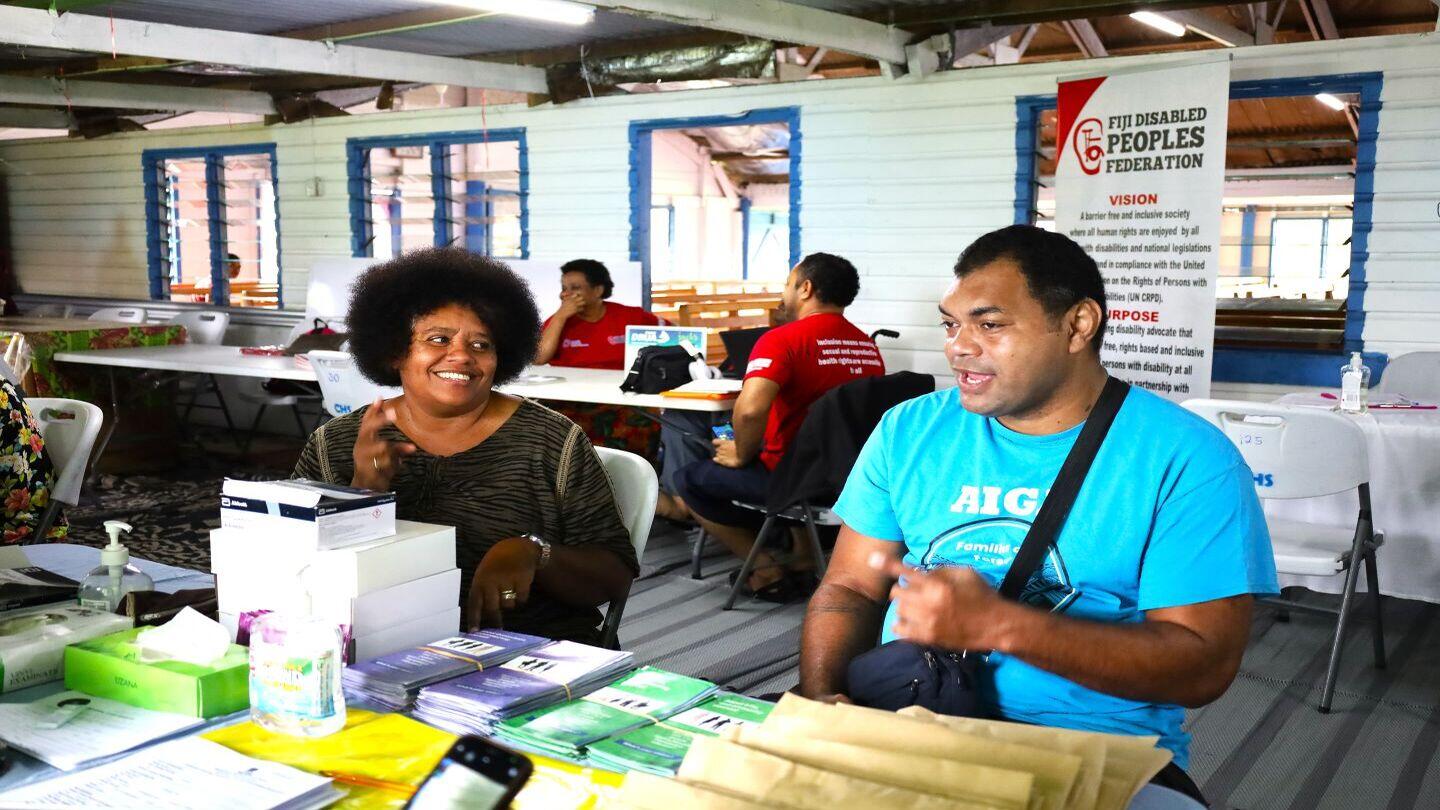For too long, disability has meant invisibility in conversations around sexual and reproductive health and rights (SRHR). Stigma, inaccessibility, and a culture of silence have made it hard for people with disabilities to receive the care, information, and respect they deserve. Too often, their needs have been overlooked, their voices unheard, and their choices remain limited.
However, this narrative is changing.
Efforts are made at policy and programme level to advocate for safe, accessible, and rights-based health services for persons with disabilities. For healthcare to be truly inclusive, its systems must be built to understand, adjust to, and serve the needs of all individuals including persons with disabilities with reasonable accommodation.
In Fiji, the Ministry of Health and Medical Services (MHMS) is spearheading a significant initiative for inclusive health. This effort is powered by a strong partnership that includes the Fiji Disabled Persons Federation, Reproductive and Family Health Association of Fiji (RFHAF), Fiji Cancer Society, Sai Prema Heart Foundation, ADRA, and is supported by UNFPA.
This initiative is part of UNFPA’s flagship programme, Transformative Agenda for Women, Adolescents, and Youth in the Pacific (TA), funded by the Government of Australia. UNFPA supports disability inclusion as a pathway towards more inclusive and equitable healthcare systems in Fiji and other TA programme countries in the Pacific, through a ‘twin-track’ approach of combining targeted interventions specifically aimed at persons with disabilities, and mainstreaming the needs of persons with disabilities across different interventions under the TA programme.
By combining health services, community mobilization, and disability advocacy, this programme ensures that SRHR services are not only available but accessible, respectful, and responsive to the diverse needs of persons with disabilities.
In the heart of Nasinu, the Nadawa Church Hall transformed into a centre for health and rights. Space echoed not with sermons or ceremonies, but with conversations about health, rights, and dignity.
For many, it was the first time they had spoken to health professionals in a safe and respectful space. For the broader community, the outreach programme highlighted the importance of inclusive, equitable, and empathetic public health approaches.
"Earlier, my source of information for my sexual health was mainly the media. This is the first time I’ve had a one-on-one session with health professionals who answered all my questions," said Josefa, a person with disability attending the outreach programme.
“Feedback like this reminds us why inclusion in health systems cannot be optional—it must be the standard”
Dr. Veniana Madanavosa, Subdivisional Medical Officer with the Ministry of Health and Medical Services, delivered a message that underscored both vision and intent:
By institutionalizing inclusive outreaches, the health system takes a major step forward; from reactive to proactive, from exclusion to equity.
Behind the scenes, the outreach was driven by leaders like Anaseini Vakaidia, SRH Project Coordinator at the Fiji Disabled Peoples Federation.
"Our role was to reach out, mobilize, and ensure persons with disabilities were not forgotten in this space.”


